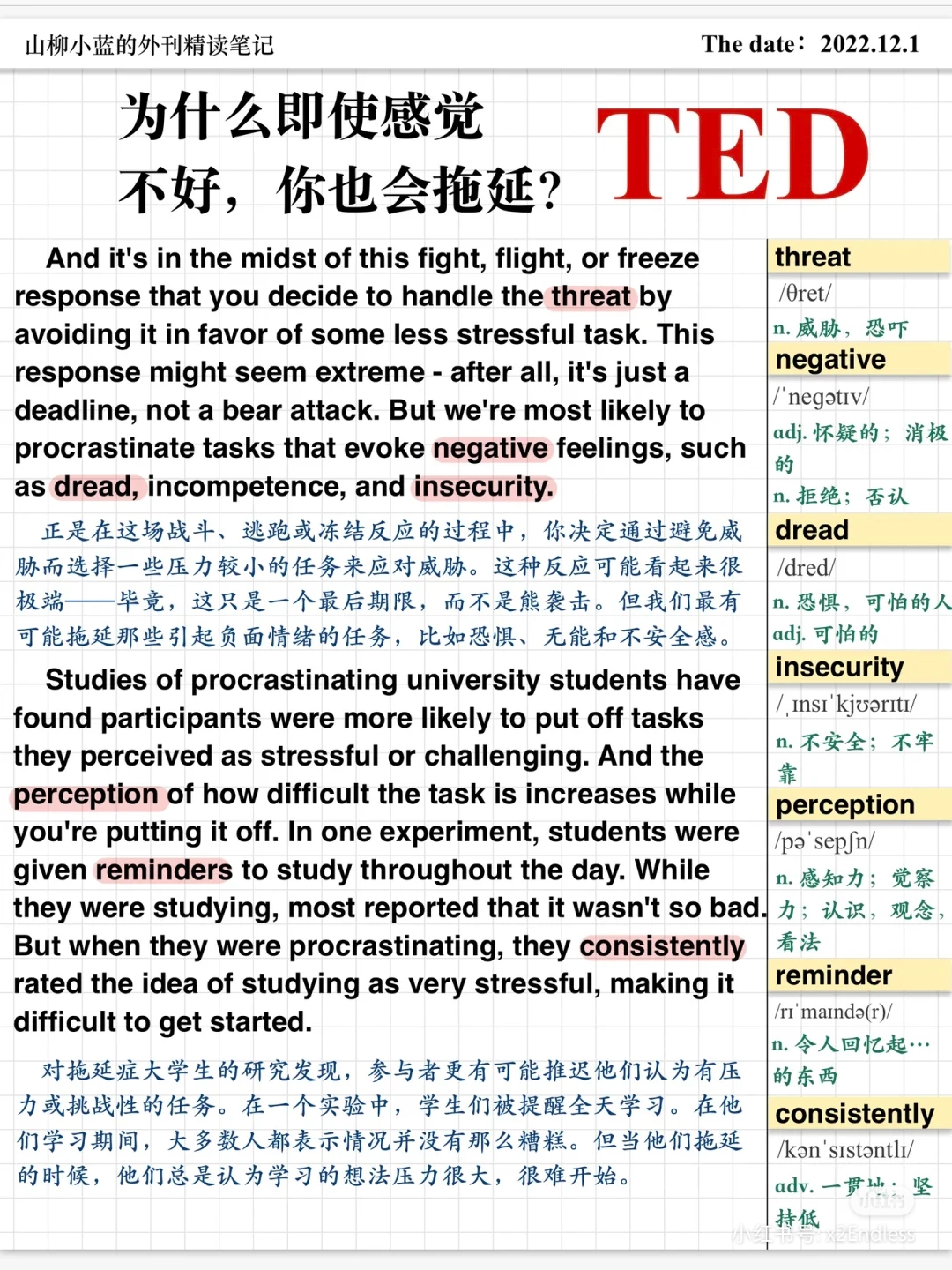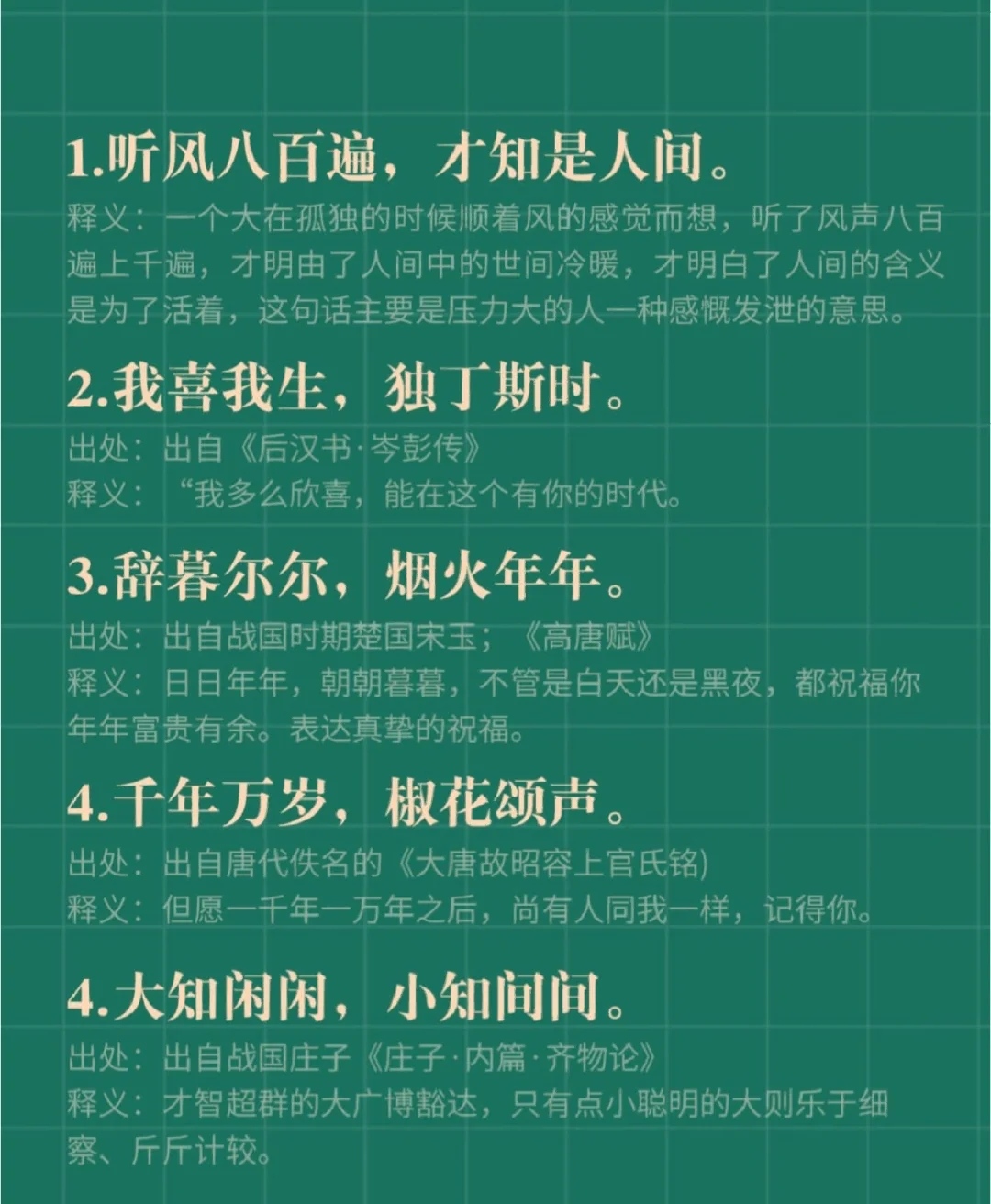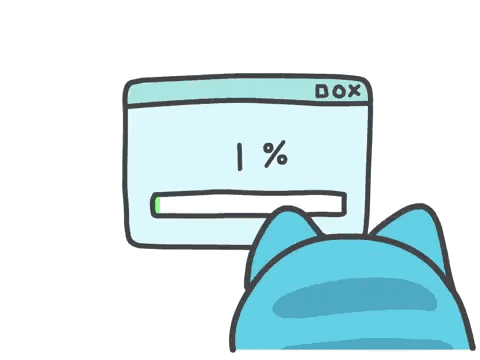And it’s in the midst of this fight, flight, or freeze response that you decide to handle the threat by avoiding it in favor of some less stressful task. This response might seem extreme – after all, it’s just a deadline, not a bear attack. But we’re most likely to.procrastinate tasks that evoke negative feelings, such as dread, incompetence, and insecurity.
正是在这场战斗、逃跑或冻结反应的过程中,你决定通过避免威胁而选择一些压力较小的任务来应对威胁。这种反应可能看起来很极端——毕竟,这只是一个最后期限,而不是熊袭击。但我们最有可能拖延那些引起负面情绪的任务,比如恐惧、无能和不安全感。
Studies of procrastinating university students have found participants were more likely to put off taskst hey perceived as stressful or challenging. And the perception of how difficult the task is increases while you’re putting it off. In one experiment, students were given reminders to study throughout the day. While they were studying, most reported that it wasn’t so bad.But when they were procrastinating, they consistently rated the idea of studying as very stressful, making it difficult to get started.
对拖延症大学生的研究发现,参与者更有可能推迟他们认为有压力或挑战性的任务。在一个实验中,学生们被提醒全天学习。在他们学习期间,大多数人都表示情况并没有那么糟糕。但当他们拖延的时候,他们总是认为学习的想法压力很大,很难开始。

















暂无评论内容